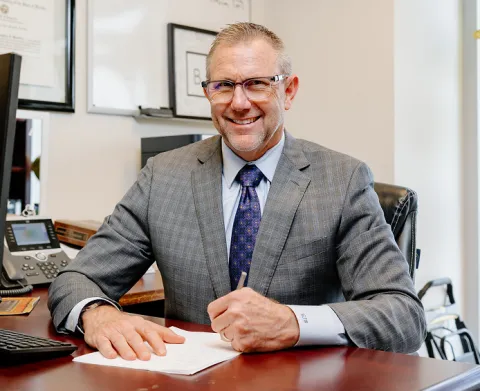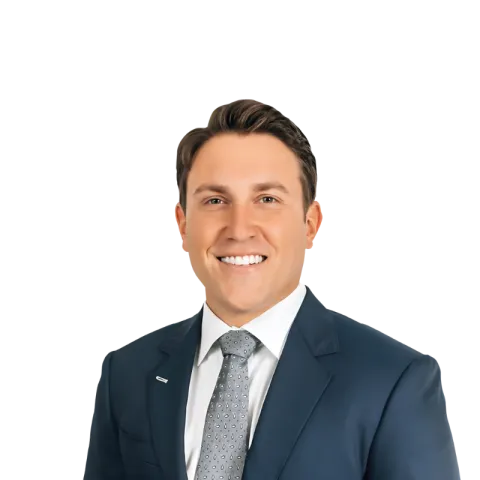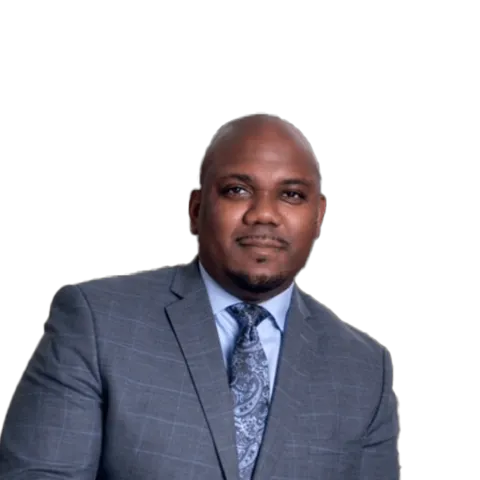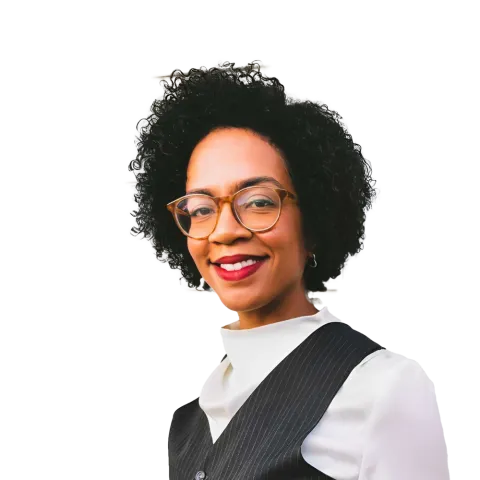Results may vary depending on your specific facts and legal circumstances. The attorney featured may not be licensed to practice in your jurisdiction. For a complete list of licensed attorneys in your area, please visit our attorney page.
From Peachtree Street to the West End, we fight for Atlanta residents because this city deserves the full strength of America’s Largest Injury Law Firm.
Results may vary depending on your specific facts and legal circumstances. The attorney featured may not be licensed to practice in your jurisdiction. For a complete list of licensed attorneys in your area, please visit our attorney page.
Why Trust Morgan & Morgan in Atlanta
A Name Atlanta Depends On
Injury Cases of Every Kind
Experienced, Trial-Ready Support
No Cost Unless We Win
Ways We Can Help
Injured in a car accident?
Hurt in a slip and fall?
Injured on the job?
Over 50 Case Types, Like:
View AllSocial Security
Dangerous Drugs
Defective Products
Medical Malpractice
Nursing Home Abuse
Labor & Employment
Truck Accidents
Class Actions
100,000+ Five Star Reviews
The reasons why clients trust Morgan & Morgan.
Results may vary depending on your particular facts and legal circumstances. Based on select nationwide reviews.
Our Results
Results may vary depending on your particular facts and legal circumstances. Based on select nationwide reviews.
How It Works
Unsure what to do next? With 35 years of experience, our personal
injury lawyers will guide you every step of the way.

Contact Us 24/7 - It’s Free
Start your claim

Meet your dedicated attorney
Meet the attorneys

We fight for more
Learn more about the case process
Local Care
Backed by America’s Largest Injury Law Firm.
$30 Billion
Recovered for clients
nationwide700,000+
Clients and families
served50 STATES
With attorneys ready
to assist1
Click may change your life
The attorney featured above is licensed in Florida. For a full list of attorneys in your state please visit our attorney page.
Results may vary depending on your particular facts and legal circumstances.
In the Community
Discover the local Morgan & Morgan experience with news, events, and partnerships.
Learn More
Injured and not sure what to do next? We'll guide you through everything you need to know.
What Should I Do Immediately After Being Injured in an Accident in Atlanta?
If you’re injured in an accident in Atlanta, you should first and foremost ensure your safety and seek immediate medical attention, even if injuries seem minor, as some may not be immediately apparent.
Call 911 to report the accident. If you are able, also document the scene with photos and videos and gather information from other drivers and witnesses. File a police report and notify your insurance company promptly, but avoid admitting fault or making statements that could be used against you.
Keep detailed records of your medical treatment, expenses, and any impact on your daily life that your injuries have caused, including lost wages from missed time at work.
Finally, consulting a personal injury attorney as soon as possible can help you navigate the legal process, protect your rights, and ensure that you meet Georgia’s two-year statute of limitations for filing a lawsuit.
Morgan & Morgan’s experienced attorneys are ready to fight for the compensation you need and deserve to move forward with your life. Contact us today for a free case evaluation to discuss your case.
Why Choose Morgan & Morgan’s Atlanta Personal Injury Attorneys?
Our Atlanta team of experienced attorneys are also local members of the community. They understand how to navigate the complexities of Georgia law, and they understand the people of Atlanta.
They are also backed by the largest personal injury law firm in America, so while you receive personal care from local experienced attorneys, you also get the benefits of Morgan & Morgan’s extensive resources, proven track record, and robust representation.
At Morgan & Morgan, we fight For the People—not the powerful—and in our over 35 years of experience as a family firm, we have recovered over $30 billion for clients, so that they could get the compensation they needed and deserved to move forward with their lives after tragedy struck.
We take personal injury seriously, and we don’t believe you should bear the consequences of someone else’s negligence. Plus, we understand that these accidents can be incredibly challenging, and that’s why we don’t think hiring a lawyer should be.
Hiring a lawyer from Morgan & Morgan is easy, and you can get started in minutes with a free case evaluation.
How Do I Know if I Have a Case Under Georgia Law?
If you've been injured due to someone else's negligence, you might be entitled to compensation. We want to ensure that everyone has access to information and the ability to get justice, so you can simply contact Morgan & Morgan for a free case evaluation to learn more about your legal options. Our team can review the details of your situation and advise you on the best course of action.
How Long After an Injury in Atlanta Can I File My Claim?
In Atlanta, the time frame to file a personal injury claim is governed by Georgia's statute of limitations. Statutes of limitations vary depending on the type of case and the state in which the injury occurred. In Georgia, you generally have two years from the date of the injury to file a personal injury lawsuit. This two-year window applies to most personal injury cases, including car accidents, slip and falls, medical malpractice, and other injuries caused by someone else’s negligence.
While two years is the standard time frame, there are some exceptions that may extend or shorten the deadline:
- Minors and Incapacitated Persons: If the injured party is a minor or legally incapacitated, the clock may not start until the minor turns 18 or the incapacitation ends.
- Claims Against Government Entities: If your injury claim is against a government entity (e.g., city, county, or state government), you must file a formal notice of claim within six months to a year, depending on the entity, before you can file a lawsuit.
- Medical Malpractice Cases: In some medical malpractice cases, there is an additional discovery rule that allows for filing within two years of discovering the injury, with an absolute limit of five years from the date of the incident.
Filing your claim within the statute of limitations is extremely important. Missing the deadline generally means forfeiting your right to seek compensation, regardless of the strength of your case. Courts are strict about these deadlines, and exceptions are rare.
How Much Does It Cost to Hire an Atlanta Personal Injury Attorney From Morgan & Morgan?
Morgan & Morgan’s Atlanta attorneys work on a contingency fee basis, meaning that there are no upfront fees or expenses until your case comes to a successful conclusion. That’s right—the Fee Is Free™, and you only pay if we win.
Our fee is a percentage of the settlement or verdict amount, ensuring we are motivated to achieve the best possible outcome for you.
Do I Have to Pay for a Consultation With an Atlanta Personal Injury Lawyer?
No. Consultations at Morgan & Morgan are completely free. We believe everyone deserves access to legal advice, regardless of their financial situation.
Hiring one of our lawyers is easy, and you can get started in minutes with a free case evaluation on our site or by phone.
What Sort of Compensation Can I Recover From an Atlanta Personal Injury Case?
Compensation can vary widely depending on the specifics of your case, but generally, it could include:
Medical Expenses
You could recover the costs of medical treatment related to your injury, including hospital bills, doctor visits, surgery, physical therapy, prescription medications, and any future medical care you may need.
Lost Wages
If your injury has caused you to miss work, you may be compensated for lost wages. This includes not only the income you have already lost but also any future earnings you may be unable to earn due to your injury.
Pain and Suffering
Compensation for pain and suffering addresses the physical pain and emotional distress caused by your injury. This could include compensation for chronic pain, anxiety, depression, and reduced quality of life.
Property Damage
If your personal property was damaged as a result of the incident, you might be entitled to compensation for repair or replacement costs. This often applies to cases involving car accidents, where vehicle damage is a significant factor.
Loss of Consortium
In some cases, your spouse or family members may be entitled to compensation for the loss of companionship, support, and services resulting from your injury.
Punitive Damages
In cases where the defendant's actions were particularly egregious or reckless, you might be awarded punitive damages. These are intended to punish the wrongdoer and deter similar behavior in the future.
Disability and Disfigurement
If your injury has resulted in a long-term or permanent disability or disfigurement, you may be entitled to compensation for the impact on your ability to work and perform everyday activities, as well as the emotional toll of such changes.
Other Related Expenses
You may also recover other expenses related to your injury, such as transportation costs for medical appointments, home modifications needed to accommodate a disability, and costs for assistive devices like wheelchairs.
Every case is unique, and the specific compensation you may recover will depend on the circumstances of your injury and the extent of your damages. At Morgan & Morgan, our experienced attorneys will thoroughly assess your case and fight to ensure you receive the full compensation you deserve.
Who Will Be on My Atlanta Case Team?
When you hire Morgan & Morgan, you don’t just hire a lawyer, you hire the largest personal injury law firm in the country with an army of over 1,000 lawyers and offices in all 50 states and Washington, D.C.
Your case will be handled by a dedicated team of professionals, including personal injury lawyers, paralegals, and support staff. You will be assigned a care team that includes a primary attorney who will oversee your case and ensure you receive personalized attention throughout the process.
When Do I Meet With My Atlanta Lawyer?
After your initial consultation, your care team will schedule regular meetings to discuss your case, provide updates, and prepare you for any upcoming proceedings. We are committed to maintaining open lines of communication and keeping you informed every step of the way.
These meetings can be handled in person, virtually, and by phone, depending on your case’s requirements and your ability to do so.
Do You Have Attorneys in Atlanta Who Speak Multiple Languages?
Yes, Morgan & Morgan has a diverse team of attorneys who speak multiple languages, including Spanish. We strive to ensure that language barriers do not prevent you from receiving the legal representation you deserve.
What Happens After I Submit My Personal Injury Claim in Atlanta?
Once you submit your claim, our team will begin a thorough investigation, gather evidence, and build a strong case on your behalf. We will keep you informed of our progress and work diligently to secure the best possible outcome for you. If a fair settlement cannot be reached, we are prepared to take your case to trial.
For more information or to get a free case evaluation, contact Morgan & Morgan’s Atlanta office today. We are here to help you navigate the legal process and fight for the justice and compensation you deserve.
Will My Personal Injury Case in Atlanta Go to Trial or Settle Out of Court?
Many personal injury cases are resolved through settlements before reaching trial. Settling out of court can be a quicker, less stressful, and more cost-effective way to resolve a case depending on the facts of the case.
However, whether your case will settle or go to trial depends on several factors, including the strength of the evidence, the willingness of the other party to negotiate, and your own preferences. At Morgan & Morgan, we prepare every case as if it will go to trial to ensure we are ready to fight for the maximum compensation possible. If a fair settlement cannot be reached, our attorneys are fully prepared to take your case to court.
How Long Does a Personal Injury Lawsuit in Atlanta Take to Resolve?
The duration of a personal injury lawsuit varies depending on the complexity of the case, the severity of the injuries, and the willingness of the parties to reach a settlement. Some cases may be resolved in a matter of months, while others can take years, especially if they go to trial.
At Morgan & Morgan, our attorneys work diligently to move your case forward as efficiently as possible while ensuring no corners are cut. We will provide you with an estimated timeline based on the specifics of your case and keep you informed of any changes. To learn more, get a free case evaluation today.
How Often Will I Receive Updates About My Case in Atlanta?
At Morgan & Morgan, we understand the importance of staying informed about your case. We are committed to maintaining open lines of communication with our clients. You can expect regular updates about the status of your case, including any new developments or offers of settlement.
Additionally, if you have any questions or concerns at any time, our attorneys and support staff are available to provide answers and reassurance. We believe that keeping you in the loop is a crucial part of providing the best legal representation possible.
¿Usted tiene preguntas acerca de su caso en español?
Los abogados de lesiones personales de Morgan & Morgan entendemos lo importante que es resolver todas sus preguntas legales en el idioma en el que usted pueda entender mejor. Por eso contamos con una sección de Preguntas Frecuentes en nuestra página de abogados.com. Recuerde que en caso de ser victima de un accidente y necesitar ayuda legal, usted cuenta con los abogados de Morgan & Morgan. Siendo el bufete de abogados de lesiones personales más grande de los Estados Unidos, contamos con los recursos y la experiencia que usted necesita para defender sus derechos. ¡La justicia es derecho de todos!


































